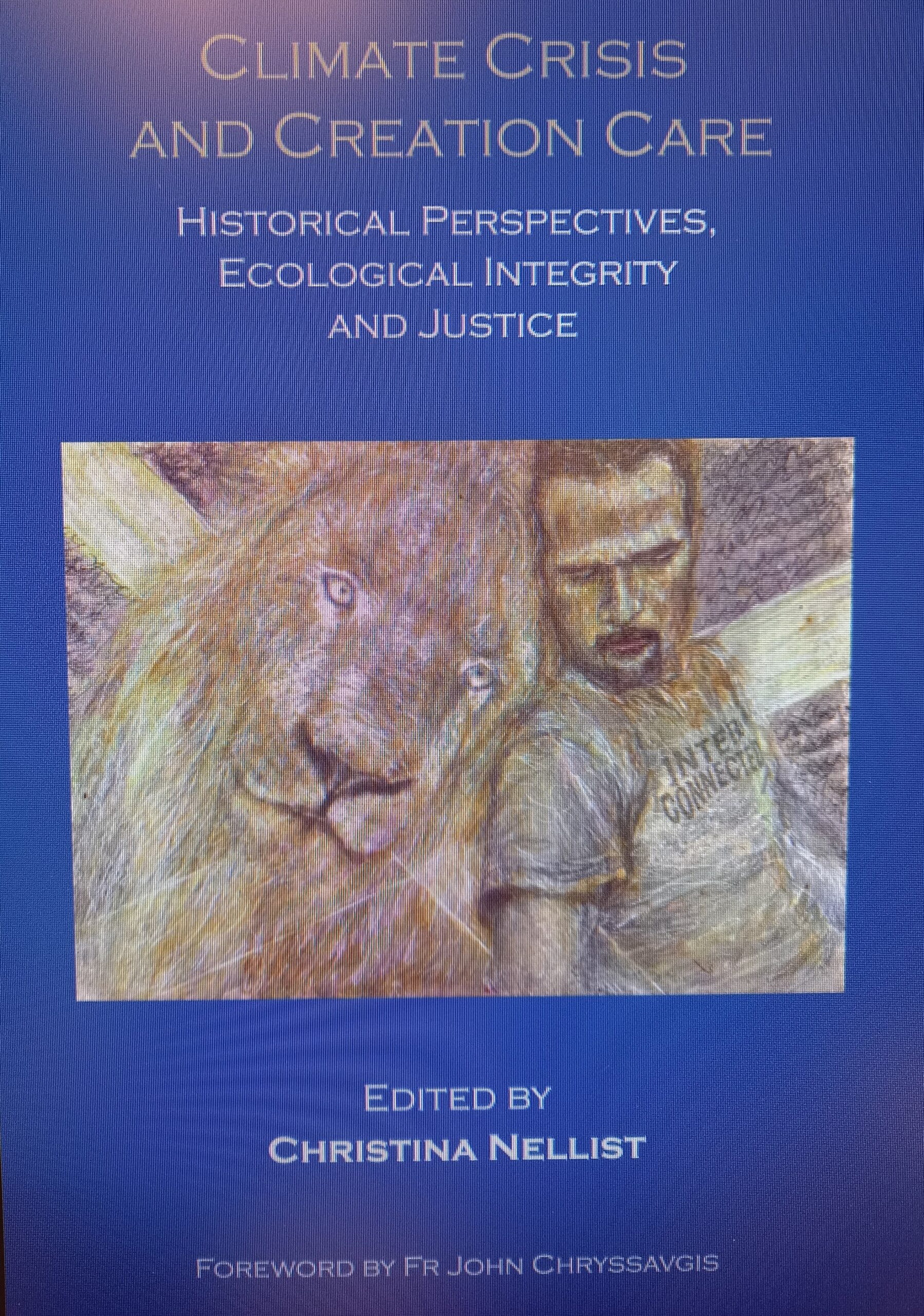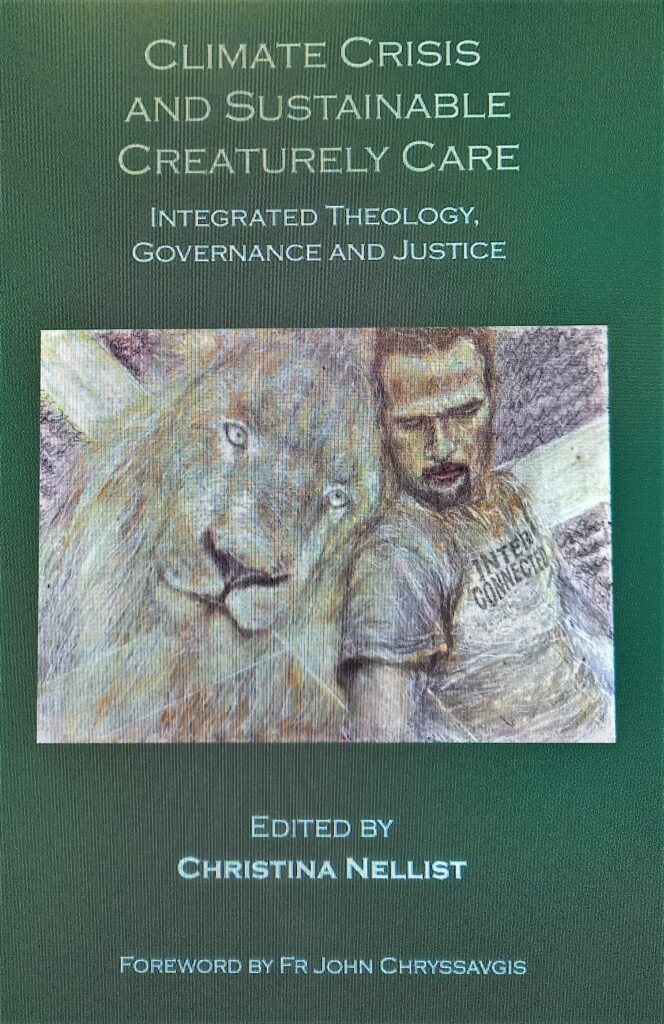Book Review
Climate Crisis and Creation Care: Historical perspectives, ecological integrity, and justice,
And
Climate Crisis and Sustainable Creaturely Care: Integrated theology, governance, and justice.
Edited by Dr Christina Nellist. Cambridge Scholars Publishing, 2021
For many, climate change might seem an area which has been over-explored already, plenty of varied tomes have been written, what we need now is surely some action. So, why do we need a two-volume collection of forty-one varied and diverse chapters, covering a wide range of perspectives, with respect to climate change and human relations with our wider creation? Should you be asked, just refer the questioner to this intriguing and genuinely path-breaking collection of essays, edited by Dr Christina Nellist.

We should, perhaps admit to some bias when it comes to Dr Nellist and her work, she is, after all, a friend of us here at CCA, and has contributed to our work, not least in this journal. Moreover, we were pleased to contribute to this collection, with a chapter based on our ongoing work on fish, as were other organisations and individuals we work with, including Animal Interfaith Alliance. Indeed, you can find readings of excerpts from these two chapters on CCA’s podcast, and more will be appearing soon.

These books manage to contribute a strong focus on faith-based approaches to creation, and particularly human engagement with creation, alongside a staggeringly wide-range of expertise and perspectives, which is varied to the point of eclecticism. On the one hand this provides a broad, and fascinating overview of current work in the area, and on the other, maintains a strength of purpose and drive. Not the least benefit of these collections is that they confirm that those of us concerned with these issues are not alone, and that we are contributing to debate on a wide front of discussion.
Delving into these texts you will discover an enormous variety. Although edited and presented from Dr Nellist’s position as an Eastern Orthodox theological expert, the editing has been open and inclusive. Different Christian approaches are explored and elucidated alongside those of other great religious philosophies. In fact, the opening, AIA, chapter of the ‘Integrated Theology’ volume provides a run-down of the views of major religions as a preparation for what is to come, but it is not only the theological views which are varied. In these volumes you will find chapters on theory and strategy, others dealing with specific issues and areas of interest, and yet more dealing with practical action in specific countries and area. These latter including countries like Uganda, Brazil, Australia, and Ukraine. There are chapters which contain substantial references to theological texts, chapters packed with scientific figures and plates, chapters stuffed with references to academic and other works, and more discursive chapters narrating opinions. It is difficult to imagine an approach to these issues which is not catered for, in some form, in these books.
Of course, one of the implications of such an open editing of this subject is that not everything here will resonate with, or please, everyone. The readings are deliberately challenging. The purpose here is to begin and foster debate, to allow us to come together and explore the possibilities with which we are faced, without judgement and in rich variety. These books may confirm and reinforce much that you believe, but equally they will challenge and question your beliefs as well.
To bring all of this together, and to provide such an important and rich opening to exploration of human relations with wider creation, and the importance and significance of faith-based perspectives in doing so, is immensely to Dr Nellist’s credit. However, the danger in doing so is that this could end up as a ‘scatter gun’ approach, peppering the area with diverse thoughts but lacking a central clarity. Dr Nellist is obviously aware of such dangers and provides some mechanisms to ensure that the central purpose and drive of the works is not lost. Notably the two volumes contain three commonalities. Each contains a brief Foreword, written by the Rev. Dr. John Chryssavgis, Archdeacon of the Ecumenical Patriarchate, and co-founder of St Andrew’s Theological College in Sydney. Both also contain an Introduction by the Editor, but most importantly, and significantly, both volumes contain a common Appendix which invites and enables future study and contemplation.
Typical of the nature of the books in their entirety, Dr Nellist makes no bones in the Appendix that they arise from her own Eastern Orthodox perspective, but immediately she invites and challenges us to engage with debate by stating: ‘I give permission for priests to adapt the material as they see fit; all I ask is the professional courtesy of authorship recognition’. The Appendix then provides a number of themes, materials, and questions for study and exploration which can be used in a variety of context, by groups and individuals, to encourage further reflection and study.
In addition, Dr Nellist states the intention to create video support for these themes, the first of which is currently available on the Pan Orthodox Concern for Animals website. In short, Dr Nellist has provided an important contribution to, and encouragement of, debates around faith, humanity, animals, and wider creation. She has done so in a spirit of inclusion and engagement which invites discussion rather than seeking to instruct. Together the two books provide a dazzlingly diverse discussion of this growingly important area, whilst also providing a structure for reflection, contemplation, and growth. As such these works represent a considerable achievement, an invitation to discovery and debate which I, for one, am looking forward to engaging with for some time to come.
Gerald Taylor
The Ark – Spring 2022
